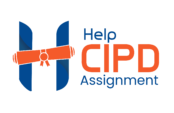3CO03 Core Behaviours for People Professionals
- March 27, 2022
- Posted by: admin
- Category: CIPD Level 3

Table of Contents
3CO03 Core Behaviours for People Professionals explores the key behaviours that people professionals should follow, with a focus on ethical practices that add value. It highlights the importance of maintaining consistent actions and mindsets, even in difficult situations, to support well-being and inclusivity within the organisation.
What will you learn
You will learn different ways to focus on customers while using ethical principles to guide your work. You will assess ethical values and apply them to your role, ensuring you follow relevant laws and regulations. The importance of positive workplace behavior will be explored, helping you to identify problems, share opinions respectfully, and contribute inclusively. You will also reflect on how to accept your mistakes, show empathy to others, and use self-reflection to improve your professional knowledge, skills, and experience.
Learning outcomes
By the end of this module, learners will:
- Understand effective ways to support and uphold ethics and professional standards.
- Be able to encourage respect and inclusivity at work, demonstrating confidence and a strong commitment to learning.
This unit is suitable for persons who:
This unit is ideal for individuals who:
- Are starting or planning a career in people practice.
- Work in a people practice support role and want to improve their knowledge and contribute effectively to their organization.
- Want to build the skills and expertise needed to become a people professional.
Related Articles:


